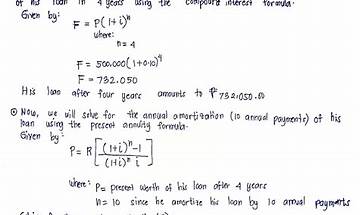Take the case as an example | Women's Rights Protection Class | If you regret signing the divorce agreement, can you re-divide the property?

case
Luo Yong and Horsey used to be husband and wife. After marriage, Luo Yong proposed to divorce Horsey by buying a second suite. At the same time, Luo Yong claimed that there were many companies under his name. In order to protect the property, he agreed that the joint property of husband and wife would be owned by Luo Yong, so that the two sides could sign the Divorce Agreement in April 2021 and handle the divorce registration procedures. The two sides agreed: 1. Dissolve the marriage relationship voluntarily; 2. Married children are raised by Horsey, and Luo Yong pays 5,000 yuan/month for maintenance until the children reach the age of 18; 3. The joint property of husband and wife such as houses and vehicles purchased after marriage shall be owned by Luo Yong, and the corresponding loans shall be paid by Luo Yong.
After the divorce, Horsey and Luo Yong still live together. On December 10th, 2021, Horsey received a WeChat message: The sender said that he had been with Luo Yong for five years, warning Horsey that he should move away if he got divorced. Horsey asked Luo Yong, and Luo Yong showed Horsey the chat record with a third party. Luo Yong had indeed cheated for five years, and divorced Horsey for a third party, not to buy a second suite. Horsey appealed to the court to request the cancellation of the agreed terms on the joint property of husband and wife in the Divorce Agreement.
Court verdict: The third item of the Divorce Agreement between the plaintiff Horsey and the defendant Luo Yong was revoked.
Analytical solution
The Supreme People's Court's explanation on the application of the marriage and family series of the Civil Code of People's Republic of China (PRC) (1) Article 70 stipulates: "If the husband and wife renege on the division of property after agreeing to divorce and request to cancel the division of property, the people's court shall accept it. After the people's court hears the case, if there is no fraud or coercion when concluding the property division agreement, it shall reject the litigant's claim according to law. " Article 151 of the Civil Code of People's Republic of China (PRC) stipulates: "If one party takes advantage of the situation that the other party is in a state of danger and lack of judgment, resulting in obviously unfair when a civil juristic act is established, the injured party has the right to request the people's court or an arbitration institution to cancel it."
According to the above-mentioned laws and regulations, combined with this case, Horsey provided Luo Yong's WeChat chat record with a third party, confirming that Luo Yong and Horsey had maintained an extramarital relationship with others for a long time before their divorce. When Luo Yong and Horsey negotiated the divorce, they said that they wanted to buy a second suite. Therefore, Horsey agreed to the terms listed in the divorce agreement, and the divorce agreement he signed was not his true intention. Luo Yong repeatedly used Horsey's psychology of considering the high down payment of the second suite to persuade Horsey to sign the agreement, which made Horsey lack the corresponding judgment when signing the divorce agreement, and finally made the rights and obligations of both parties obviously unbalanced. The content of the divorce agreement was obviously unfair to Horsey, so Horsey's claim was finally supported by the people's court.
Declaration: All article resources on this website, unless otherwise specified or labeled, are collected from online resources. If the content on this website infringes on the legitimate rights and interests of the original author, you can contact this website to delete it.






